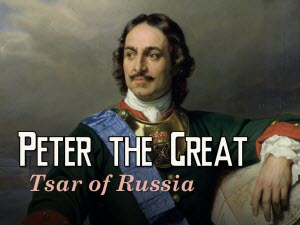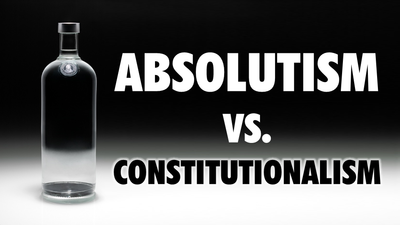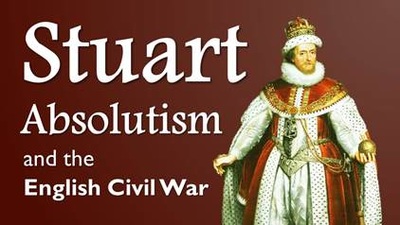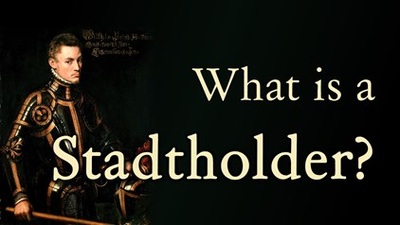Foundations of Absolutism |
ON YOUR OWN BEFORE
Wed, 3 October |
|
This first lesson has two parts. First, students will learn about the context surrounding the development of absolutist states as absolute monarchs had to contend with lingering Medieval institutions. The second part of the lesson is an introduction to the Divine Right of Kings, a doctrine used by many European monarchs in the 17th century to provide biblical justification for their pretensions to absolute power.
Textbook ReadingsWood, 173-179
E-Lectures Available on YouTube
Documents and Materials
|
PowerPoint Presentations |
Louis XIV: The Sun King of France |
COMPLETE BEFORE
Thurs, 4 October |
|
Any serious discussion of absolutism must begin with Louis XIV, the Sun King who built an absolute monarchy in France, which before his rule had been dominated by powerful nobles. Louis brought the French monarchy to an unprecedented level of power. He is most famous for his Palace at Versailles and for his wars, which culminated in the War of the Spanish Succession.
Textbook ReadingsSpielvogel, 444-450
Wood, 179-186 E-Lectures Available on YouTubeThe Wars of Louis XIV
Documents and Materials
|
PowerPoint PresentationsSpittin' Those Euro BarsAnd yeah... one night, it snowed and I was so bored that I wrote and recorded a Louis XIV rap. TRUE STORY!
BEAT CREDIT: "Ice Flow" Kevin MacLeod (incompetech.com)
Licensed under Creative Commons: By Attribution 3.0 creativecommons.org/licenses/by/3.0/ |
The Palace of VersaillesLouis' magnificent Palace of Versailles was an essential part of his designs to overawe France (and all of Europe) with the magnificence of the French monarchy. Here are a couple of videos that I like to show in class.
|
|
|
Mercantilism: The Economics of Absolutism |
COMPLETE BEFORE
Tues, 9 October |
|
Absolute monarchs sought not only to centralize the political power of the state, but also to harness all available economic forces in order to create a competitive economy. Mercantilism was an attractive economic philosophy for absolute monarchs as it allowed for economic development coordinated by a central authority.
Textbook ReadingsSpielvogel, 432-433, 447
E-Lecture Available on YouTubeDocuments and Materials
|
PowerPoint PresentationMerc Turk Hand Turkey ProjectSince it's usually around November when I teach this, students have fun making "Merc Turks," hand turkeys that highlight the "hands on" nature of mercantilism (in contrast to the "invisible hand" of economic liberalism). It's become a bit of an AP Euro tradition.
|
Absolutist Prussia: Sparta of the North |
ON YOUR OWN BEFORE
Tues, 9 October |
|
Louis XIV might have put together the largest standing army that Europe had ever seen, but the Prussians mobilized more soldiers per capita than any other European nation. Prussia's trademark militarism earned the small kingdom the nickname, "Sparta of the North."
Textbook ReadingsSpielvogel, 451-452
Wood, 186-190 E-Lecture Available on YouTube |
PowerPoint PresentationDocuments and Materials
|
Rise of Russia & Peter the Great |
COMPLETE BEFORE CLASS
Wed, 10 October |
|
While Louis XIV was building an absolutist state in Western Europe, Peter the Great was laboring to build Russia into a great power on the Western model.
Textbook ReadingsSpielvogel, 453-456
Wood, 191-196 E-Lectures Available on YouTube
Documents and Materials
|
PowerPoint Presentations |
More Peter the Great Videos
|
|
|
|
Introduction to Constitutionalism |
ON YOUR OWN BEFORE
Thurs, 11 October |
While absolutism was implemented successfully in France, Prussia, Russia, and Austria, the English and the Dutch rejected this model in favor of constitutionalism, a form of government that limits the power of the central authority. I contrast absolutism and constitutionalism in this lecture, which will be helpful for students to view before learning about the development of constitutionalism in England and the Netherlands.
E-Lecture Available on YouTube |
PowerPoint Presentation |
Stuart Absolutism and the English Civil War |
COMPLETE BEFORE CLASS
Thurs, 11 October |
E-Lectures Available on YouTube
|
Documents & Materials
PowerPoint Presentation |
The Restoration and the Glorious Revolution |
COMPLETE BEFORE CLASS
Fri, 12 October |
E-Lectures Available on YouTube
|
PowerPoint PresentationI'm NOT a rapper, but...One time, I was teaching the Restoration and I said, "Back then..." and a student said halfway under his breath, "...didn't want me" and I had an idea for a rap parody about Charles II based on Mike Jones' "Back Then."
|
Thomas Hobbes vs. John Locke
|
ON YOUR OWN BEFORE
Mon, 15 October |
|
Thomas Hobbes and John Locke were two of the most important political philosophers of the 17th century and continued to be studied today by students of history, philosophy, and government. Students should be able to compare and contrast these philosophers and explain their differing views of the social contract.
Textbook ReadingsSpielvogel, 466-467
Wood, 252-254 E-Lecture Available on YouTubeDocuments & Materials
|
PowerPoint Presentation |
The Dutch Golden Age |
COMPLETE BEFORE CLASS
Mon, 15 October |
|
In an age when absolutism was the fashion in continental Europe, the confederated Dutch Republic experienced a Golden Age, becoming the preeminent trading power and most prosperous nation in Europe in the early 17th century.
Textbook ReadingsSpielvogel, 460-461
Wood, 97-99 (Dutch Revolt), 126-127 (East India Company), 144 (Art) E-Lecture Available on YouTube |
PowerPoint Presentations |

























